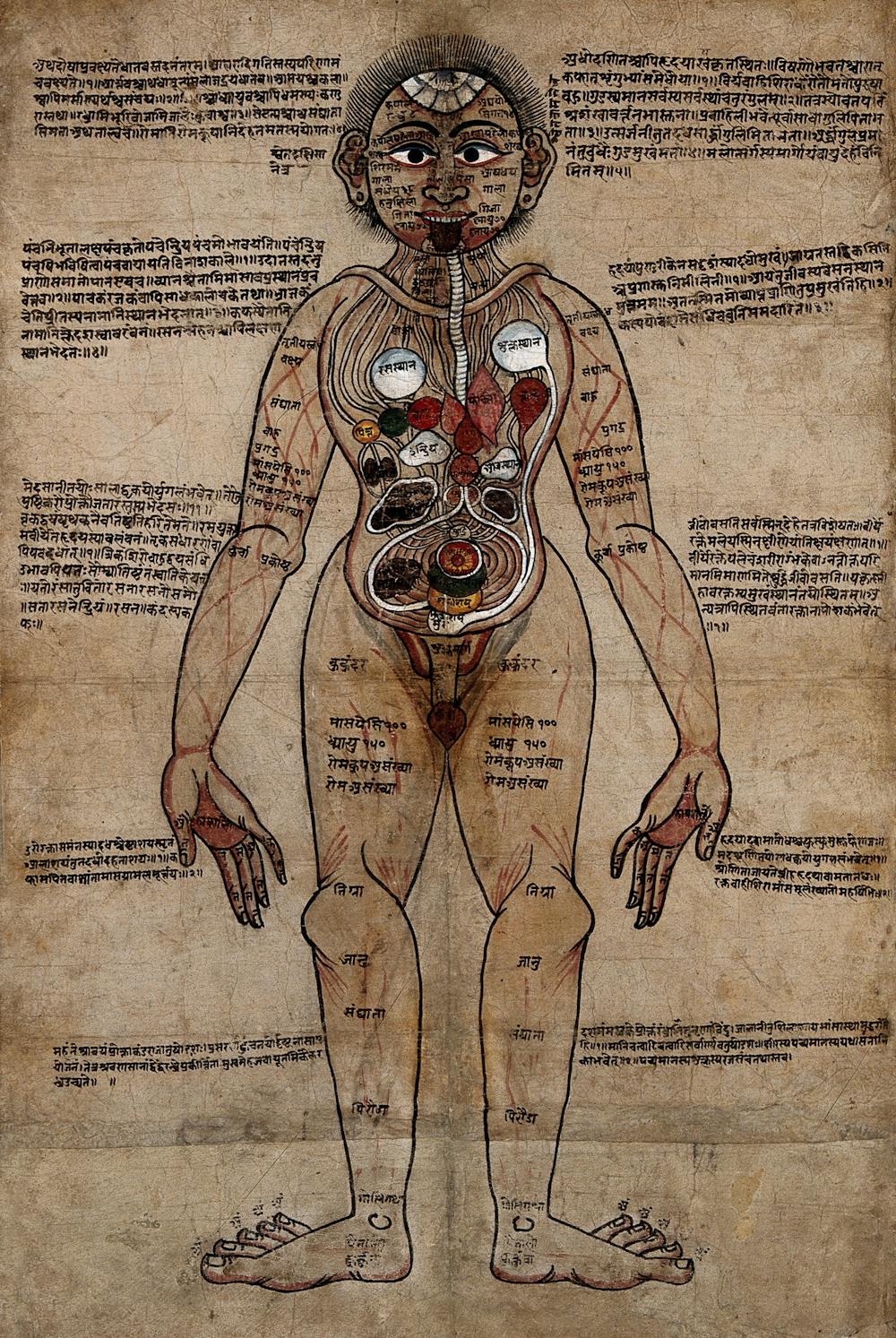How Ayurveda Integrates with Modern Medicine for Optimal Health
How Ayurveda Integrates with Modern Medicine for Optimal Health
Blog Article
Why You Have to Obtain It: The Transformative Power of Ayurveda Explained
Ayurveda, a time-honored system of medication, offers an unique viewpoint on health and wellness that transcends simple symptom management. By stressing the elaborate equilibrium between mind, body, and spirit, it supplies a framework for comprehending specific constitution with the principle of doshas. This individualized approach not only addresses physical disorders yet also cultivates emotional and spiritual well-being. As we discover the core concepts and practices of Ayurveda, it comes to be apparent that its transformative prospective expands much beyond standard health paradigms-- increasing the question of exactly how it could reshape your understanding of wellness.
Understanding Ayurveda's Core Principles
Ayurveda, usually referred to as the "scientific research of life," is rooted in a holistic approach to health that intertwines the physical, mental, and spiritual measurements of health. Central to Ayurveda are the principles of the 5 components, referred to as "Pancha Mahabhuta," which consist of planet, water, ether, fire, and air. These components incorporate to create three primary powers, or "doshas": Vata, Pitta, and Kapha, each standing for various combinations of physical and emotional attributes.


Recognizing these doshas is important for determining a person's unique constitution, or "Prakriti," which overviews personalized health and wellness methods. Ayurveda stresses equilibrium, advocating for a lifestyle that harmonizes these energies via diet, herbal remedies, and daily regimens. In addition, Ayurvedic principles assert that health is not merely the lack of condition yet a state of optimum vigor.
The method of mindfulness and self-awareness is basic, motivating people to create a deeper connection with their bodies and the environment. By identifying the interplay of physical and emotional elements, Ayurveda promotes a comprehensive understanding of health that encourages individuals to organize their well-being, cultivating a course towards all natural improvement.
Benefits of Ayurvedic Practices
On a regular basis integrating Ayurvedic practices right into every day life can produce a wide range of advantages that improve overall health. These classic customs focus on attaining harmony within the spirit, body, and mind, leading to improved physical wellness, mental clearness, and emotional balance.
One significant benefit of Ayurvedic practices is their capacity to promote digestion health and wellness. Personalized dietary referrals, based on a person's dosha, can maximize nutrition absorption and decrease gastrointestinal concerns. Additionally, Ayurvedic natural herbs and flavors, such as turmeric and ginger, have anti-inflammatory properties that can help in the avoidance and administration of persistent diseases.
Furthermore, Ayurvedic methods emphasize the value of day-to-day routines, known as dinacharya, which foster stability and predictability in one's life. This uniformity can reduce stress degrees and improve efficiency. Mindfulness strategies, consisting of reflection and yoga exercise, not just grow mental durability however additionally boost emotional law.
Lastly, by fostering a connection to nature and emphasizing holistic living, Ayurveda encourages people to take part in self-care and cultivate a sense of community. Generally, the integration of Ayurvedic practices can lead to a more well balanced, vivid, and fulfilling life.
Key Components of Ayurvedic Recovery
At the core of Ayurveda lie 3 primary elements: the principle of doshas, the emphasis on equilibrium, and the holistic technique to health and wellness. The doshas-- Vata, Pitta, and Kapha-- represent the unique mixes of the 5 elements that govern private constitutions.
Balance is a recurring theme in Ayurvedic healing, reflecting the idea that wellness emerges from harmony within the body and in between the private and their environment. Interruption of this equilibrium can bring about condition, requiring targeted treatments to recover balance.
Moreover, Ayurveda welcomes an all natural method, considering physical, mental, and spiritual elements of wellness. This comprehensive point of view check these guys out acknowledges that psychological well-being and way of life selections substantially influence physical health.
Integrating Ayurveda Into Daily Life
Integrating the principles of Ayurveda right into every day life can considerably enhance overall health and promote a much deeper link to one's body and setting. By embracing Ayurvedic practices, individuals can cultivate balance and consistency within themselves, adjusting to their unique constitution or dosha.

Including herbal remedies and natural components into individual treatment routines can additionally reinforce Ayurvedic principles. Using oils for self-massage, known as abhyanga, promotes blood circulation and leisure. In addition, integrating reflection or yoga can enhance mental clarity and emotional security, fostering an alternative technique to health.
Lastly, recognizing environmental elements, such as climate and seasonal adjustments, allows individuals to adjust their lifestyles as necessary, making sure that their techniques continue to be encouraging and effective - Ayurveda. By weaving these concepts into day-to-day life, one can experience profound advantages, bring about a much more balanced and fulfilling existence
Individual Improvements Through Ayurveda
The implementation of Ayurvedic view it principles into daily routines usually causes substantial individual improvements, as people begin to experience extensive shifts in both physical and psychological health. By welcoming methods such as nutritional alterations, organic supplementation, and mindful meditation, many record boosted power degrees, enhanced food digestion, and boosted emotional durability.
People usually discover that the alternative strategy of Ayurveda addresses not simply signs and symptoms, but underlying imbalances within the body and mind. Embracing a tailored dietary routine based on one's dosha can lead to weight management, decreased swelling, and far better overall vitality. The incorporation of day-to-day self-care routines, such as oil drawing or Abhyanga (self-massage), cultivates a much deeper connection to one's body, advertising self-awareness and nurturing psychological well-being.
As specialists dive much deeper right into Ayurvedic approach, they frequently discover a renewed feeling of objective and quality in their lives. This transformative journey encourages people to cultivate mindfulness, bring about much healthier relationships and a better appreciation for the existing minute. Eventually, Ayurveda equips people to organize their health and wellness, assisting in a purposeful and long-term improvement in their lives.
Conclusion
By identifying specific doshas and applying customized methods, Ayurveda promotes optimum wellness and emotional resilience. The principles of Ayurveda use valuable understandings for cultivating a fulfilling and lively life.
As we explore the core principles and methods of Ayurveda, it ends up being evident that its transformative potential extends far beyond conventional wellness standards-- increasing the inquiry of how it could improve your understanding of wellness.
Ayurveda, commonly defined as the "science of life," is rooted in an alternative strategy to health and wellness that links the physical, psychological, and spiritual measurements of wellness. At the core of Ayurveda exist three key components: the principle of doshas, the emphasis on equilibrium, and the holistic technique to health. Eventually, Ayurveda equips individuals to take fee of their wellness, assisting in a long lasting and significant transformation in their link lives.
By identifying individual doshas and implementing customized methods, Ayurveda fosters ideal health and psychological strength.
Report this page